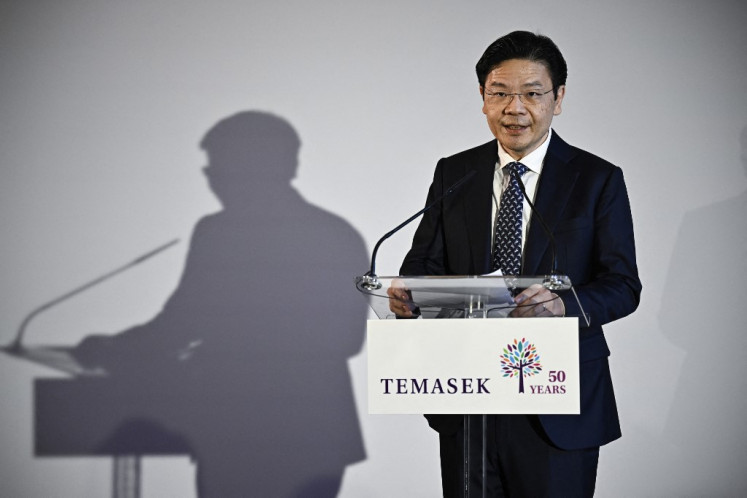Critics slam ‘private’ IEU-CEPA negotiations
The sixth round of negotiations for the Comprehensive Economic Partnership Agreement between Indonesia and the European Union (IEU-CEPA) — which was held in Palembang, South Sumatra, from Oct
Change Size

T
he sixth round of negotiations for the Comprehensive Economic Partnership Agreement between Indonesia and the European Union (IEU-CEPA) — which was held in Palembang, South Sumatra, from Oct. 15 to 19 — has been criticized by trade experts who slammed the government’s lack of transparency regarding key results from the talks, including food sovereignty.
Agriculture research firm Spora Institute researcher and Sriwijaya University lecturer Julian J. Polong criticized the government’s decision to hold the latest round of IEU-CEPA negotiations behind closed doors, a move, he said, was “an alleged attempt to limit public knowledge regarding results from the discussions”. “It’s such a shame. The negotiations should have been open to members of the public.”
He also slammed the negotiations’ myopic focus on trade liberalization and deregulation, as well as foreign investments.
Julian said foreign investments resulting from free trade agreements with developed countries were more likely to hurt Indonesia’s economic growth than boost it. “If trade demands from the developed countries outweigh ours, the agreement will likely undermine Indonesia’s sovereignty.”
One of the major takeaways from the IEU-CEPA proposal is agricultural patent rights and its impacts on agricultural biodiversity. The proposal stipulates that member countries of IEU-CEPA must also be member countries of the International Union for the Protection of New Varieties of Plants (UPOV), whose prevailing convention — based on the concept of intellectual property rights — was last revised in 1991.
“We must not let foreign parties monopolize our homegrown seeds, fertilizers and pesticides which will otherwise be used against our own farmers,” Julian said.
Indonesian Farmers Union (SPI) foreign affairs division head Zainal Arifin Fuad said such a policy would empower multimillion dollar companies — both foreign and domestic — to claim particular seeds and crops as their own.
“No good will come of patent rights. Our smallholder farmers will most likely get the short end of the stick. Corporations have been known to employ misleading red tape to get what they want,” Zainal said, adding that the policy would also contradict the traditionally held collectivist spirit of smallholder farmers.
He added that it would be wise if the government scrapped the trade agreement with the EU entirely because he believed it would bring more harm than good to Indonesian farmers.
Environment watchdog the Indonesian Forum for the Environment’s (WALHI) South Sumatran office director Hairul Sobri said the organization would urge the government to involve the public, especially farmers, in future trade negotiations. “We hope the government sides with its own people rather than foreign investors.”
The Trade Ministry’s director general for international trade negotiations, Imam Pambagyo, said the IEU-CEPA negotiations covered several key issues, including the bilateral trade in goods and services, investment, intellectual property rights, entrepreneurial subsidies, trade regulations and dispute settlement mechanisms.
He added that the partnership between Indonesia and the EU, through the CEPA, would provide a host of diplomatic possibilities that could ultimately herald a new era of bilateral transparency, especially in relation to trade.
“The President [Joko “Jokowi” Widodo] has repeatedly urged us to work hand-in-hand with other countries to positively contribute to world economic growth,” Imam said, adding that market access would be the core of the negotiations.









